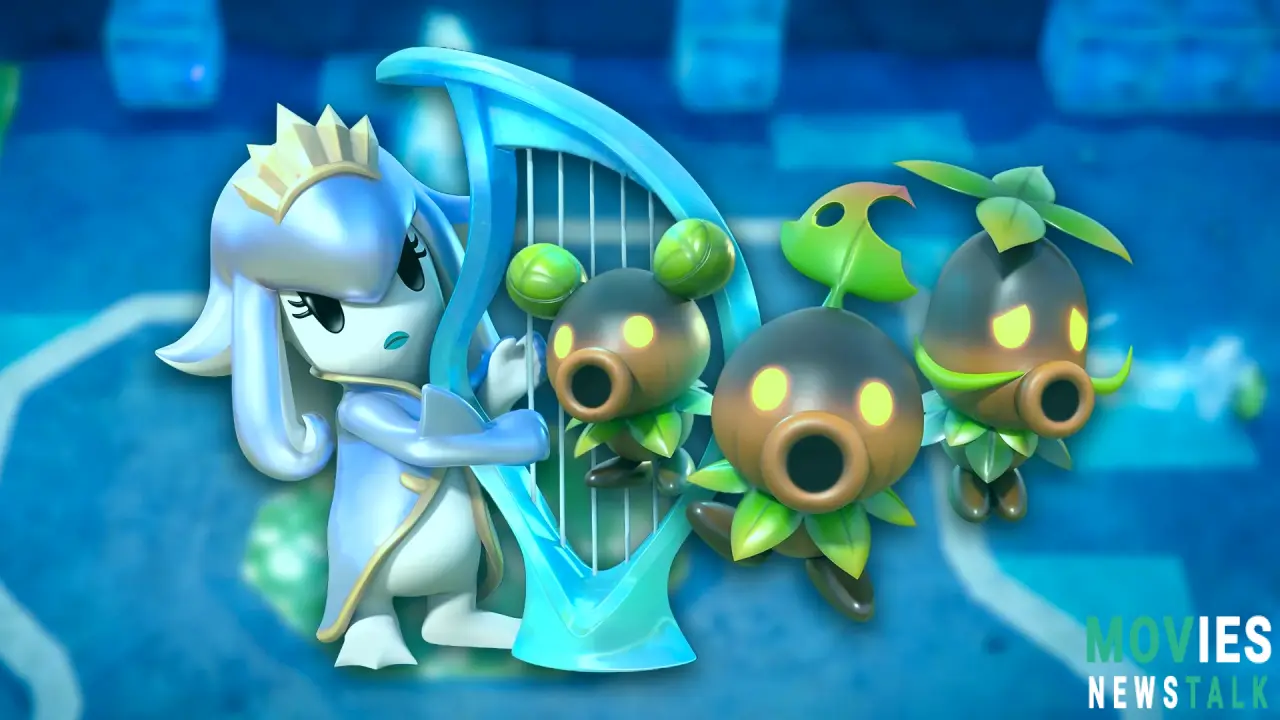Zelda: Echoes of Wisdom - Why Leaving Out One Familiar Race Made the Game Better!
Echoes of Wisdom's Bold Choice: Skipping the Rito for a More Powerful Story
The Legend of Zelda: Echoes of Wisdom is a brilliant mix of classic and new Zelda elements. Yet, the decision to leave out one well-known race actually enhances the game. It shows just how bringing in beloved elements could hurt the game. Using this particular gameplay tactic shows how a creative team could've totally upended expectations. Re-using familiar elements might not work if this isn’t executed well.
Echoes of Wisdom has many familiar places and cultures from Zelda history – those awesome Zora in Jabul Waters , that interesting mix between both river and sea-based Zora—all those moments creating fascinating plotlines exploring concepts of leadership; It even includes lessons on leadership (a great approach because we're seeing the story from Zelda’s viewpoint, not Link's). It totally fits, doesn’t it? But it is one major element's absence which totally shines. The Rito (those bird people from The Wind Waker, who showed up again in Breath of the Wild and Tears of the Kingdom) are completely missing, despite existing in other places. Why?
Why No Rito? A Timeline Conundrum (and a Story Opportunity)
The Rito's absence in Echoes of Wisdom makes perfect sense when you examine that long, often messy Zelda timeline. In The Wind Waker , the Rito evolved from the Zora; Breath of the Wild (and Tears of the Kingdom) tossed both together, resulting in serious timeline confusion! This totally upset a lot of expectations; that specific inconsistency with game-lore had caused considerable upset among long-time fans; Nintendo’s explanation: BOTW and TOTK are part of a completely separate universe from the main Zelda timeline. Now, that makes far more sense, folks!
Yet that detail is actually very significant for another reason! Because it directly highlights what makes Echoes of Wisdom work so well; a lack of reliance on using previously existing material or themes. We see it specifically on Hebra Mountain (a Breath of the Wild location formerly inhabited by Rito) and we discover there isn’t simply something else there that replaces that absence entirely: It’s remarkably empty, with the lone major character being Condé , a Yeti, who you initially meet face down in the snow!
Condé: The Unexpected Heart of Hebra Mountain
Condé's solitude sets him apart from other characters, which is what ultimately makes Condé such a compelling addition to Echoes of Wisdom! His heavy story; dealing with grief and loss really helps raise this unique level that wasn't particularly seen often in other Zelda games, showcasing themes rarely considered.
The other stories often showcase optimism and humor—while Condé's focuses on that tragic loss of a father and a separated brother and the immense sadness generated from such powerful and profound events—making this particular tale different compared to other areas within the game which emphasizes this specific aspect of dealing with loss and grief. There’s no neat ending—which separates him and helps emphasize a unique narrative perspective that wouldn't have otherwise happened if simply replacing Condé's presence by inserting something more positive.
Why Skipping Familiar Races Can Refresh the Zelda Formula
This seemingly obvious inclusion however changed Echoes of Wisdom for a greater reason. The overall game strategy involves prioritizing a variety of stories which create an enjoyable, but importantly a variety of varied experiences that keeps that feeling unique! Even similar stories to prior iterations of the same cultures didn't bring about much uniqueness – the Gerudo plot; a recurring race– is okay, but nothing incredibly fresh. Skipping established elements gives a game an ability to create that feeling of fresh energy – even small adjustments like changing this element helps. Adding Rito could’ve diluted that element entirely; it is that absence of overused themes which made this creative decision really so powerful!
There’s plenty of room for surprising shifts: that willingness creates uniquely amazing moments within this universe, that added opportunity would allow this story arc even further creative leeway; and that creative development becomes another interesting strategy. There's nothing inherently wrong in continuing and using already successful themes and elements; but choosing not to would ultimately bring out more significant details and impact for some elements; such as what transpired with Condé’s story, the development and use of an existing yet less popular creature! That entire thing alone created something unique and special, creating emotional depth rarely found before.
Conclusion: Embracing Change (and a Lonely Yeti)
Echoes of Wisdom's decision to skip the Rito was surprisingly smart. It didn’t diminish quality; rather it enhanced the emotional range; highlighting storytelling innovation that many fans loved. That specific choice opens opportunities. Even introducing a new culture, such as a large Yeti society, couldn’t deliver that unique touch that Condé’s lonely narrative brought.
And that very cleverness shows how using the same ideas repeatedly doesn't guarantee success, in games or in life. A bold creative choice shows just how far this new Zelda title manages to go. And there is still great potential for that return for the Rito later, but using this clever strategy—those very changes created this unique addition that otherwise might never exist.

